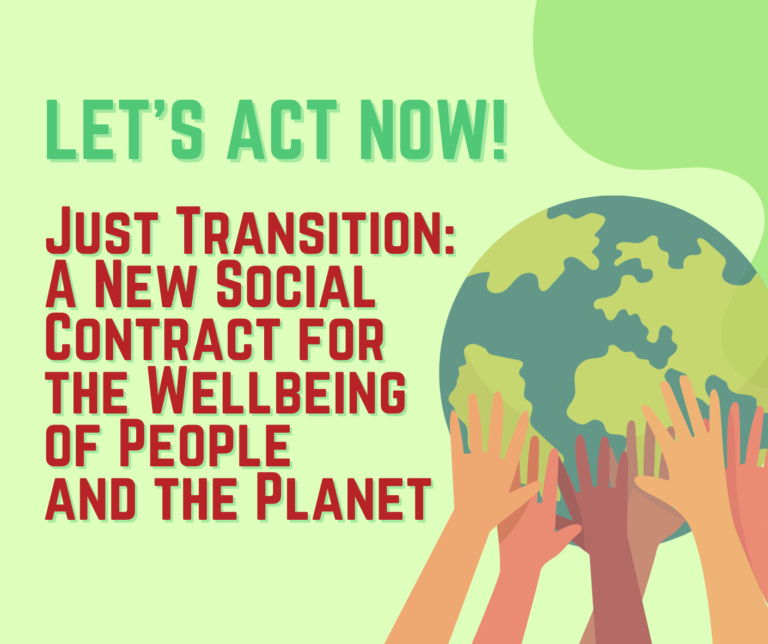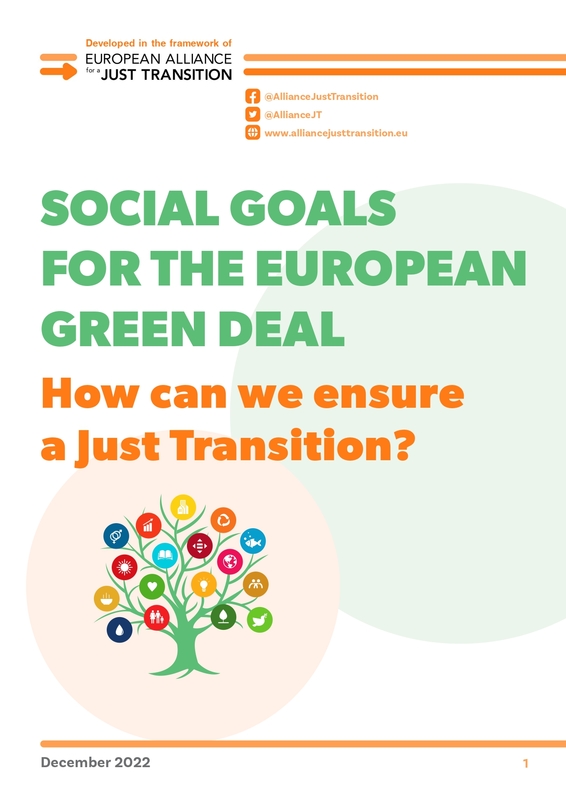EU Member States commit to action for a Just Transition towards climate neutrality in new Council Recommendation
June 19, 2022
In the context of the European Green Deal, the Council of the EU just adopted its first text drawing close connections between the climate neutrality objectives and the pursuit of social justice. The catch? The act is, alas, non-binding.
On June 16, 2022, ministers responsible for employment, social affairs, health and consumer policy from the 27 EU Member States gathered in the EPSCO configuration of the Council of the European Union and, among other things, adopted a Council Recommendation on a fair transition to climate neutrality.
The act invites national governments to adopt and implement comprehensive and coherent policy packages addressing the employment and social aspects of the green transition, with the objective of ensuring that the transition is just, fair and inclusive. More in detail, the list of recommendations includes:
- Support for quality jobs for the most affected by the transition (people in vulnerable situations such as low- and lower-middle income households), including through effective enforcement of existing rules on working conditions, the use of socially responsible public procurement practices and the full and meaningful involvement of workers and their representatives.
- Equal access to quality and inclusive education, training and life-long learning, as well as equal opportunities. The list includes integrating the employment and social aspects of the green transition in national skills strategies and adapting education and training curricula according to occupation-specific and transversal skills needs.
- Taxation and social protection measures, such as shifting the tax burden away from labour, reducing the tax wedge for low- and middle-income groups and providing targeted and temporary direct income support.
- Ensuring access to affordable essential services and housing through, among others, energy efficiency improvement measures, well-designed tax incentives, grants and loans, together with related advice, and adequate mobility and transport policy and support measures.
- Build an integrated and enabling policy framework for a fair transition.
- Harmonise definitions, concepts and methodologies and carry out employment, social and distributional (ex-ante and ex-post) impact assessments and evaluations as part of national climate, energy and environmental reforms and measures.
- Involve social partners in all stages of policymaking and empower and enable civil society to participate in policy design and implementation.
- Deploy adequate national resources to contribute to the implementation of measures delivering a fair green transition and ensure an optimal use of existing instruments and funding at national and EU level.
SOLIDAR welcomes this Council Recommendation, which recognises that climate change hits those in vulnerable situations hardest and turns the spotlight on the importance of advancing social goals hand in hand with climate action. Moreover, SOLIDAR supports the introduction of point 8.f on supporting a fair green transition also in third countries, which was not in the proposal by the European Commission from December 2019.
However, SOLIDAR regrets that references to the Social Climate Fund have been removed from the adopted text, this way sending the wrong signal to constituencies, in times of high energy prices and when direct income support and long-term investment to decarbonise are urgent and vital. In addition, SOLIDAR strongly believes that issuing recommendations to Member States is not sufficient in view of the challenges that are at stake. Ensuring a Just Transition means taking strong measures for systemic change, and climate policies – adopted through the very concrete Fit for 55 package – should be accompanied by concrete legislative proposals on the social and employment aspects.
Now, it is time for Member States to implement the Council Recommendation. SOLIDAR will monitor developments related to Just Tranistion and will point out inaction and delays.
Picture credit: European Commission





